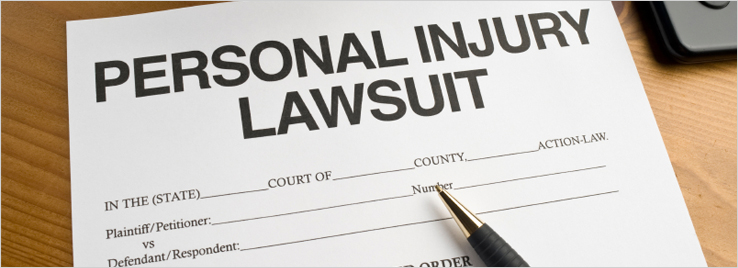How to File a Personal Injury Lawsuit?

If you’ve been the victim of an injury, you may be eligible to file a personal injury lawsuit. Personal injury lawsuits are a common type of legal claim that can recover compensation for harm done to your body, mind, or emotions. While this type of lawsuit is typically reserved for those who suffer from serious physical harm, it is also possible to file a lawsuit for wrongful death.
Basic elements of a personal injury claim
The legal elements of a personal injury claim are legal liability, damages, and evidence. You must establish that the defendant failed to exercise reasonable care in the circumstances of the accident. This duty of care can be breached by being negligent or careless. For example, if the defendant was texting while driving, he or she may be liable for an accident.
Further reading: What area of law is personal injury?
The most important element of a personal injury claim is proving causation. The defendant must have acted negligently and caused the accident. If the injury is the result of medical malpractice, the physician may argue that the patient was suffering from a side effect from the medical treatment.
Damages that can be recovered in a personal injury case
There are several types of damages that can be recovered in a personal injury claim. These include both economic and non-economic damages. Economic damages compensate for actual injuries and losses, while special damages compensate for the other effects caused by the accident. These damages may include medical bills, lost wages, and pain and suffering. Non-economic damages are harder to quantify, but can include lost companionship and love.
Injuries can cause a person to become incapacitated and unable to perform household duties. Often, the injured person will be unable to work for three weeks, preventing him or her from earning a living. Additionally, serious accidents can affect the quality of life, requiring the injured person to postpone or cancel expensive plans.
Damages that can be recovered in a wrongful death case
Damages that can be recovered in a lawsuit for wrongful death vary depending on the circumstances. Damages can include pain and suffering and lost wages. In some states, punitive damages are also available. These are awarded when the person responsible for the death was grossly negligent or engaged in egregious conduct. These damages are often difficult to measure, but a skilled wrongful death attorney can ensure that the jury understands the ramifications of the death.
Damages that can be recovered in a case for wrongful death are calculated based on the age of the deceased, the estimated lifespan of their heirs, and other factors. They may also include the value of the goods and services the deceased person would have provided. Additionally, wrongful death lawsuits can include non-economic damages, such as loss of companionship and mental anguish.
Statute of limitations for personal injury lawsuits
The statute of limitations for personal injury lawsuits varies between states. In Connecticut, for example, the limit is two years. In other states, the limit can be much longer, up to six years. Therefore, it is critical to know the timeline in your state. A personal injury lawsuit can be filed only if you file it within this timeframe.
There are several exceptions to the statute of limitations. For example, if the defendant has moved out of state or has committed fraud, there’s a chance the statute will be tolled. Similarly, if the victim was unable to discover the injury within the timeframe, the statute will be extended.











